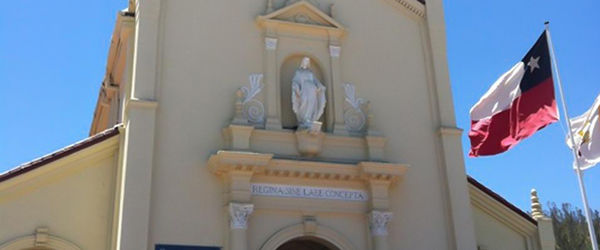Two dozen religious leaders have joined the president of the Lutheran Church-Missouri Synod in signing an open letter he wrote to oppose the U.S. Department of Health and Human Services' contraceptive mandate and urge it be retracted.The Rev. Matthew C. Harrison June 21 issued the letter called "Free Exercise of Religion: Putting Beliefs into Practice," which states that "no government should tell religious organizations either what to believe or how to put their beliefs into practice."The letter, available online at www.lcms.org/president, also objected to the narrowly drawn exemption to the mandate, which requires most religious employers to provide free coverage of contraceptives and sterilization procedures for their workers. It added that this "incursion" by the HHS prevents the free exercise of religion."For the well-being of our country, we oppose the application of the contraceptive mandate to religious institutions and plead for its retraction," it added.Among the Catholic signers of the letter were Cardinal Timothy Dolan of New York, president of the U.S. Conference of Catholic Bishops; Baltimore Archbishop William Lori, chairman of the bishops' Ad Hoc Committee on Religious Freedom; and Archbishop Robert Carlson of St. Louis.The headquarters of the Lutheran Church-Missouri Synod are based in St. Louis.The leaders of a number of Catholic communities of women religious were among the signers, along with officials of the Orthodox Church, Evangelical Lutheran Synod, National Association of Evangelicals, Hispanic Evangelical Association, Presbyterian Church in America, General Council of the Assemblies of God, Islamic Society of the Washington area and others."As religious leaders from a variety of perspectives and communities, we are compelled to make known our protest against the incursion" by HHS "into the realm of religious liberty," the letter stated."We who oppose the application of this mandate to religious institutions include not only the leaders of religious groups morally opposed to contraception, but also leaders of other religious groups that do not share that particular moral conviction," it said."That we share an opposition to the mandate to religious institutions while disagreeing about specific moral teachings is a crucial fact," it continued. "Religious freedom is the principle on which we stand."Rev. Harrison said in a statement that he drafted the letter "because there are moments in history where one needs to speak and stand" for basic principles. "This is one. Our First Amendment rights are on the line," he added.The Lutheran Church-Missouri Synod is the second largest U.S. Lutheran body. It has about 2.3 million members.The release of the letter coincided with the start of the U.S. bishops' "fortnight for freedom" campaign, which ends July 4. The observance is dedicated to prayer, education and public action to help Catholics and the rest of the country understand how the federal contraceptive mandate violates religious liberty.In the Washington area, the InterFaith Conference of Metropolitan Washington issued a similar statement May 29, saying the HHS mandate might require religiously affiliated institutions to "provide funds for health services that violate their conscience and religious beliefs.""We are especially concerned in the case of those institutions, such as the Archdiocese of Washington, which are self-insured," the statement said.Members of the InterFaith Conference of Metropolitan Washington include the Baha'i, Buddhist, Hindu, Muslim, Jain, Jewish, Mormon, Protestant, Roman Catholic, Sikh and Zoroastrian faith communities. The group is involved in interfaith dialogue and cooperative efforts for social and economic justice, which includes "protecting religious freedom."The organization called on "all interested parties to reach for higher ground in achieving both social goods: that of preserving religious freedom and that of ensuring equal provision of affordable health care."Father Avelino Gonzalez, ecumenical and interreligious officer for the Archdiocese of Washington, was one of the drafters of the statement."It was clear from the start that it was not going to be easy to reach consensus on a statement given the politically charged atmosphere," he said, but "a long process of negotiations" resulted in a statement approved by a majority vote, he said, that addresses religious freedom concerns and the need to provide affordable health care.The priest, who also is pastor of St. Joseph Parish on Capitol Hill, said that "having the interfaith community weigh in on this difficult and contentious debate is a significant accomplishment."—CNS

